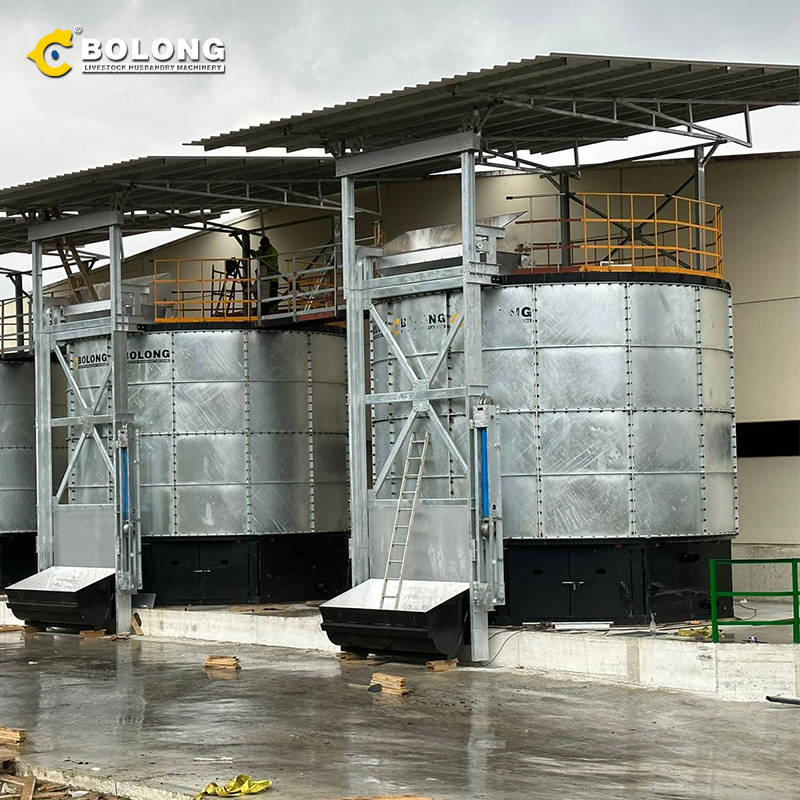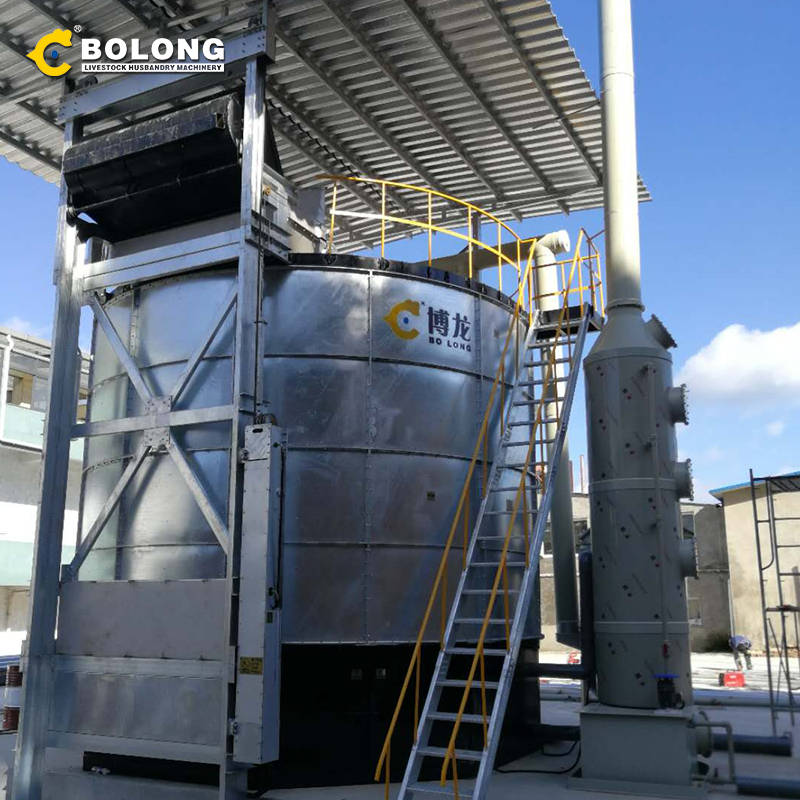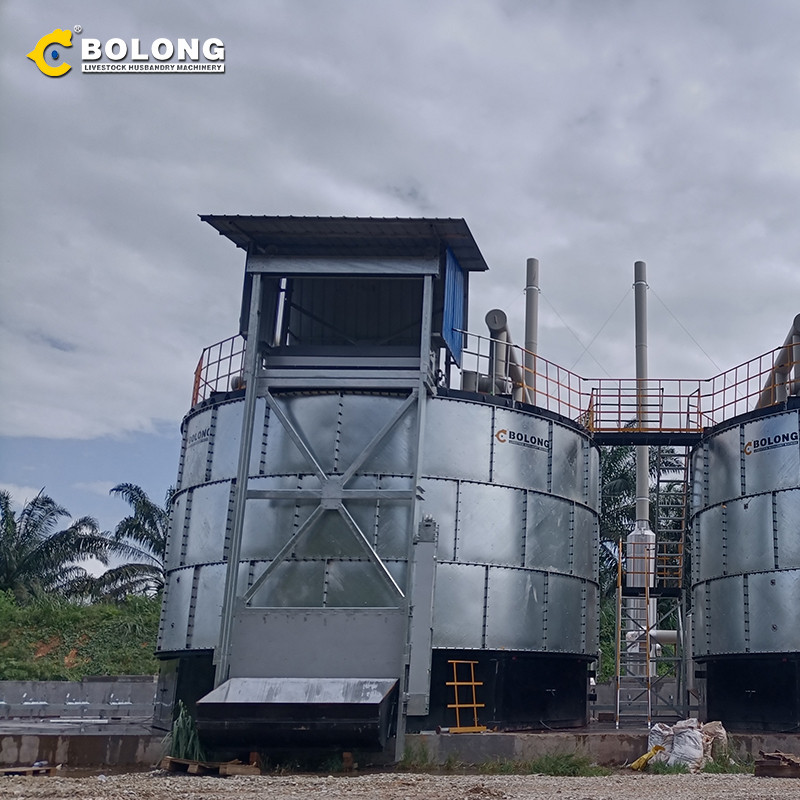Resource recycling is an important part of the sustainable development strategy of modern society, especially in the fields of agriculture and environment, where efficient resource utilization is closely related to ecological balance. As an innovative green technology, organic fertilizer composting machines achieve efficient treatment and reuse of organic waste through scientific process design and management. This technology not only effectively alleviates the environmental pressure in agricultural production, but also promotes the development of resource recycling. This article will discuss the working principle of organic fertilizer composting machines, the implementation path of resource recycling, and its important significance to the ecological environment and agricultural development.
Organic fertilizer composting machine is a device that accelerates the decomposition of organic waste and converts it into organic fertilizer by controlling fermentation conditions. Its core principle is to use the decomposition ability of microorganisms in nature to convert organic waste (such as crop straw, livestock and poultry manure, food waste, etc.) into nutrient-rich organic fertilizer under suitable environmental conditions. The composting machine mainly achieves efficient treatment through the following processes:
The composting machine accepts various organic wastes as raw materials and creates suitable conditions for microbial fermentation through pretreatment .
The interior of the composting machine adopts a closed design and is equipped with a temperature control system to provide suitable temperature, humidity and oxygen supply to promote the activity of aerobic or anaerobic microorganisms. These microorganisms decompose complex organic matter into simple nutrients through metabolic activities.
During the high temperature fermentation stage (above 55°C), harmful substances such as pathogens and parasite eggs are killed, and the odor is effectively controlled.
After fermentation, the organic material is converted into a structurally stable and harmless organic fertilizer, which is rich in nitrogen, phosphorus, potassium and trace elements and can be directly used for agricultural planting.
The waste gas and wastewater generated during the fermentation process are purified by the environmental protection treatment system of the equipment to achieve zero pollution emissions.
Through the above process, the organic fertilizer composting machine converts waste that originally had potential harm to the environment into resources, achieving the purpose of waste recycling.

Organic fertilizer composting machines play an important role in resource recycling, and their paths are mainly reflected in the following aspects:
A large amount of waste, such as straw, livestock and poultry manure, etc., will be generated during agricultural production. If these wastes are not handled properly, they will lead to eutrophication of water bodies, soil pollution and greenhouse gas emissions. Through organic fertilizer composting machines, these wastes can be efficiently converted into high-quality fertilizers, which not only avoids environmental pollution, but also provides a sustainable source of nutrients for agricultural planting.
The accelerated urbanization process has brought about a surge in food waste, which is difficult to handle and easy to produce odor. composting machine technology can degrade food waste and convert it into fertilizer or bioenergy, realizing the closed-loop management of waste to resources.
Organic fertilizers promote the healthy development of soil ecosystems by improving soil structure, increasing soil microbial activity and improving crop nutrient absorption rate. Compared with chemical fertilizers, organic fertilizers have longer-lasting nutrient release characteristics, which helps to achieve a virtuous cycle of agricultural ecosystems.
During the fermentation process, the composting machine reduces the incomplete decomposition of organic carbon in the waste and the release of methane, significantly reducing carbon emissions. Using organic fertilizer instead of chemical fertilizer can also reduce energy consumption and greenhouse gas emissions generated in the production of chemical fertilizers, thereby achieving the goal of carbon neutrality in agricultural production.

Reducing environmental pollution: composting machine technology significantly reduces the accumulation and pollution emissions of waste, and has a suppressive effect on the pollution of water, soil and air.
Enhancing biodiversity: By improving soil conditions, organic fertilizers produced by composting machines help promote soil microbial diversity and healthy crop growth.
Reducing greenhouse gases: Carbon emissions caused by the incineration and landfilling of agricultural waste are reduced through waste resource utilization.
Reducing agricultural costs: The use of organic fertilizers can reduce dependence on chemical fertilizers, while improving soil fertility, and can reduce farmland management costs in the long run.
Creating a new industrial chain: Organic fertilizer production has promoted the industrialization of agricultural waste treatment and green agricultural development, creating economic benefits for related companies.
Policy support and market demand: With the country’s emphasis on ecological agriculture and the growing demand for organic food from consumers, the production and use of organic fertilizers have received dual support from policy subsidies and market expansion.

Although organic fertilizer composting machine technology has achieved remarkable results, there are still some challenges in its promotion and application, such as high equipment investment costs, high technical barriers, and the waste collection system in some areas has not yet been perfected. In the future, it can be further optimized from the following aspects:
① Technology upgrade: Develop more intelligent and modular composting machine equipment to reduce the cost of use and improve processing efficiency.
② Policy support: Strengthen financial subsidies and technical training for organic fertilizer production enterprises, and improve the management system of waste resource utilization.
③ Public education: Improve public awareness of resource recycling and organic agriculture, and promote the practice of resource recycling in the whole society.
④ Industrial collaboration: Establish a collaborative mechanism in the fields of agriculture, environmental protection and energy to achieve a win-win situation for all parties.
As one of the important technologies for resource recycling, organic fertilizer composting machines not only provide an efficient solution for agricultural waste treatment, but also promote the transformation and upgrading of agricultural production methods. By using this technology rationally, we can realize the recycling mode of “turning waste into treasure” in agricultural production, improve resource utilization efficiency while protecting the ecological environment, and truly achieve a win-win situation of economic and ecological benefits. In the future, with the continuous innovation of technology and the deepening of promotion and application, organic fertilizer composting machines will play a greater role in promoting sustainable development.